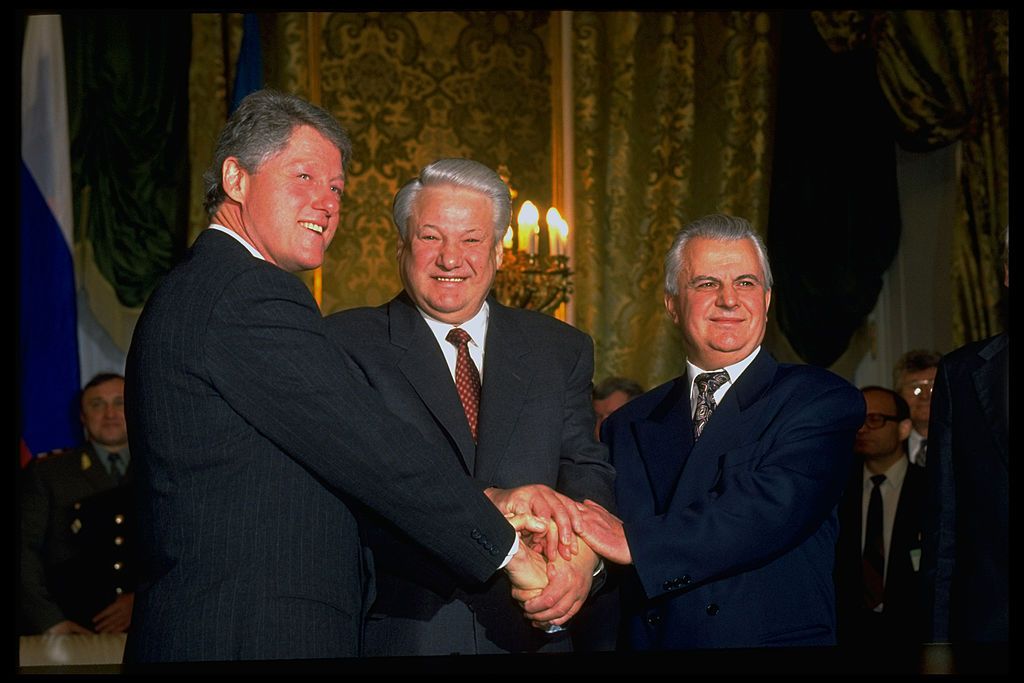'Not a single day did this document work' — Zelensky on 30th anniversary of Budapest Memorandum

The Budapest Memorandum, signed on Dec. 5, 1994, did not work for "a single day," President Volodymyr Zelensky said in his evening address on the 30th anniversary of the document's signing.
"Today marks 30 years of the Budapest Memorandum. Ten years of war. Not a single day did this document work," Zelensky said.
"And because of this, everyone in the world will now know that a mere signature — by any state — or any assurances or promises are not enough for security."
According to the Budapest Memorandum, the signatory countries — the U.K., Russia, and the U.S. — pledged to be guarantors of Ukraine's independence, as well as sovereignty, and refrained from using weapons or economic pressure against Ukraine. In exchange, Ukraine renounced its nuclear status.
Zelensky added that effective guarantees are currently needed for Ukraine's security, namely "real alliances and a real security foundation within the country," as well as "weapons that enable defense and deterrence of the enemy."
The president also called for unity, saying it helps to overcome "even the most challenging moments."
Anton Liagusha, the academic director of the master's program in Memory Studies and Public History at the Kyiv School of Economics (KSE), said in an interview with the Kyiv Independent that Ukraine agreed to a non-nuclear status under enormous pressure.
"Russia used the Budapest Memorandum very cunningly. To be more precise, it encouraged and coerced the West to pressure Ukraine to sign the memorandum. At the same time, Russia positioned it as 'a noble act of global geopolitics,'" Liagusha said.
"Russia promoted the narrative that Ukraine is a failed state, a non-existent state, and non-existent means uncontrolled. And in a non-existent uncontrolled state, nuclear weapons are the worst possible option. Unfortunately, this cunning and sneaky diplomacy and propaganda reached their goals."
According to the historian, giving up nuclear weapons was a mistake, and now Ukraine must try to restore its nuclear capabilities to be able to defend itself.
Heorhii Tykhyi, a spokesperson for Ukraine's Foreign Ministry said on Oct. 17 that the country is not planning to develop weapons of mass destruction and remains committed to nuclear non-proliferation.











